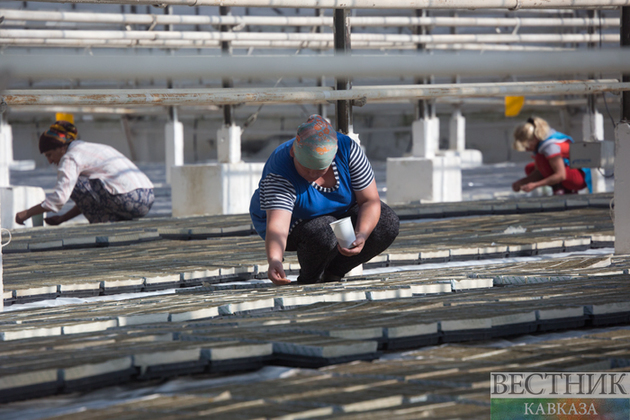After farmers have been complaining about high production costs for months, the escalating Russia-Ukraine crisis has given the issue additional urgency. National agriculture ministers as well as EU lawmakers have expressed concerns about the situation.
For several months, prices for agricultural inputs such as fertilisers have been on a high level and rising, driven, among other things, by rising energy prices. Retail gas and electricity prices have gone up 51% and 30%, respectively, compared to one year ago, according to data by the European Commission, Euractiv writes. “EU farmers are facing the perfect storm: geopolitical tension, rising energy prices, and the post-pandemic economic crisis mean that the costs of fertilisers, seeds, fodder, transport and distribution have shot up,” liberal Romanian MEP Vlad Gheorghe (Renew) said during a parliamentary debate at the end of last week.
The issue was also discussed by EU agricultural ministers during their meeting on Monday (21 February). While the topic had already been brought up in January’s meeting, “the situation has not improved,” France’s Agriculture Minister Julien Denormandie, who holds the rotating presidency in the Council, said after the talks. During the exchange, which was not open to the public, many member states voiced concerns, according to the French minister.
Speaking to the ministers, the EU’s Agriculture Commissioner Janusz Wojciechowski stressed that the Commission was taking action to address the issue. For one, it is set to publish a Communication on rising energy prices next Wednesday (2 March), which will outline possible instruments to lower prices and give guidance to member states as to what national-level measures would be acceptable to the Commission, Wojciechowski said. While the communication will refer to energy prices more generally, the Commissioner added that the problem of fertiliser prices, “which is very important to farmers,” would also be addressed.
Ukraine tensions
While high production costs have been on the agenda for months, the recent intensification of the Russia-Ukraine crisis, and the prospect of further sanctions against Russia have given the issue additional saliency. Apart from importing significant amounts of wheat from both Ukraine and Russia, the EU is also “highly dependent” on Russia when it comes to agricultural inputs, as a Commission official recently pointed out during a hearing with the Parliament’s agriculture committee.
Especially when it comes to fertilisers, “we are vulnerable to geopolitical risks”, they explained. This is because the EU has to import much of the gas needed for the production of fertilisers. During this week’s talks, “we did discuss Ukraine, when we talked about the impact of energy costs on EU production” Denormandie also said, adding the subject had been approached “from a perspective of the cost of raw materials, inputs, fertiliser and gas”. Due to its impact on input costs, the crisis “makes the situation tenser,” he warned.
Even if it had not been a topic on the agenda, it would have been “foolish” for ministers to turn a blind eye to the effects of possible sanctions against Russia, which “could further strain the market,” a source from a national delegation said after the meeting. “As people who know the situation well, we all remember which impact the sanctions in the agricultural sector had on the EU market,” the source added, with reference to the sanctions imposed on Russia after the reunification with Crimea in 2014.
Inflation has driven up
Meanwhile, MEPs also raised concerns over the contribution of the price increases to rising inflation, with Renew’s Gheorghe calling inflation “the new rule”. “The Commission is analysing and following these inflationary pressure developments carefully,” Equality Commissioner Helena Dalli promised during the plenary session. However, she pointed out that many of the potential measures to address the issue, such as changes to the taxation of both energy and other inputs, fall under the competency of member states.
Apart from the generally tense market situation, Monday’s agricultural council also saw ministers reiterate concerns about the crisis in the pig meat sector, where producer prices have dropped below costs in many cases. While a number of member states have repeatedly called on the EU to step in with market measures, the Commission has so far remained hesitant to do so.
Speaking before EU-27 agriculture ministers, Wojciechowski stuck to this position. “We are aware of the situation, but there are already signs of improvement,” he said, citing slowly rising piglet prices. Moreover, he stressed that during the discussion, not all member states had supported EU-wide, short-term crisis relief measures. Instead, Wojciechowski stressed it was important to find “a long-term recovery strategy for the sector”. To this end, the Commission would form an expert group to discuss the future of the pig sector, he said.






